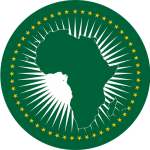It’s fascinating to read Xi Jinping’s address to the World Economic Forum and then to read the comments about the speech. What U.S. commentators focus on, and what they ignore, reveal much about the challenges posed by China’s rise to established powers like the United States.
The commentary pieces from Western authors I’ve seen focused on Xi’s warnings about the dangers of a new Cold War, and his call to revitalize multilateralism. Some also highlighted his criticism of countries that ‘slip into arrogant isolation,’ with the same frisson with which American news outlets used to report Iranian leaders calling the U.S. names.
Xi’s speeches are always oblique and require reading between the lines. So, it’s not surprising that these commentators sifted through what they see as a ‘community of shared destiny’ boilerplate, searching for something more meaty and geopolitical, especially with the Biden administration barely a week old.
But it struck me that nobody pointed out that the speech highlights a different, and formidable, Chinese challenge to the current world order: what Xi called ‘the North-South gap’ between developed and developing countries.
In the speech, Xi said: “As countries grapple with the pandemic, their economic recoveries are following divergent trajectories, and the North-South gap risks further widening and even perpetuation. For developing countries, they are aspiring for more resources and space for development, and they are calling for stronger representation and voice in global economic governance.”
For many readers, this no doubt sounds like more of that ‘shared destiny’ boilerplate. But Global South countries don’t have the luxury of thinking about mutual development talk as mere boilerplate – and nobody understands this more clearly than Xi Jinping.
While Western international self-presentation emphasizes inclusivity and sustainable development, Western domestic politics have a lot riding on exclusion. The debate around migration in the U.S., Europe, and elsewhere is a great example, but so are cases of vaccine hoarding in some of these countries.









